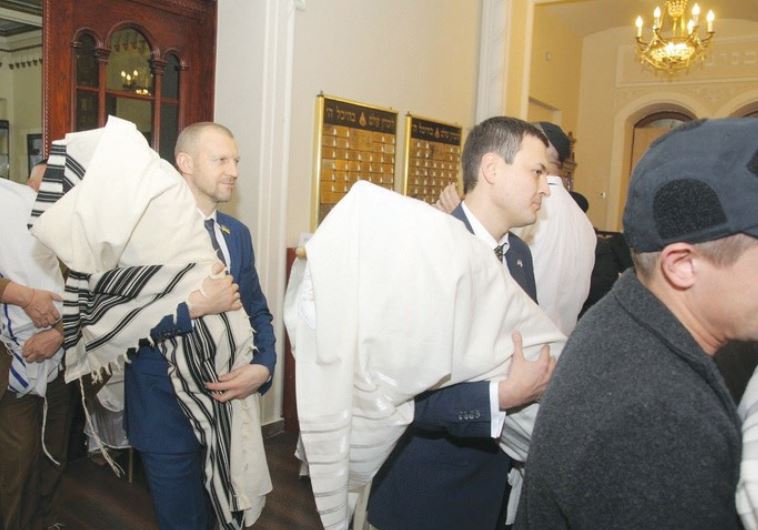Ukrainian government returns Torahs confiscated by Communists
"This is a real miracle of Hanukka," says Brodsky Choral Synagogue’s Rabbi Moshe Azman.
 UKRAINIAN OFFICIALS return the Torah scrolls to the Brodsky Choral Synagogue in Kiev on Thursday.(photo credit: ROMAN VILENSKI)Updated:
UKRAINIAN OFFICIALS return the Torah scrolls to the Brodsky Choral Synagogue in Kiev on Thursday.(photo credit: ROMAN VILENSKI)Updated: